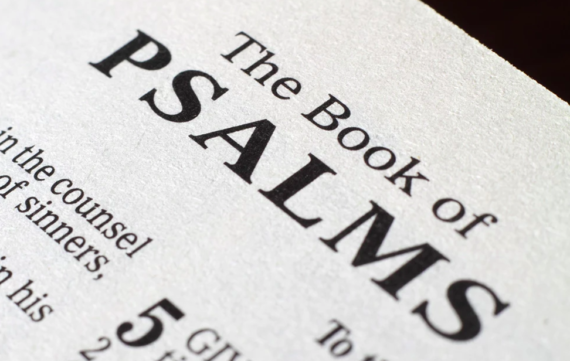The heading here (“A Shiggaion of David, which he sang to the Lord concerning the words of Cush, a Benjaminite”) is often thought to be more reliable than most headings. An imaginary heading would not mention an unknown event with an unknown antagonist. We know that David was opposed by Benjamites, the tribe of King Saul (1 Sam 24-26; 2 Sam 16:5 & 20:1).
A false accusation of disloyalty to covenant or friendship seems to be the form of the attack. As we all know, “Sticks and stones may break your bones, but words are what really hurt you.” A false accusation is sometimes especially difficult. One can repent of the wrong if the accusation is true. But the falsely accused often see no way out.
When falsely accused we should let this Psalm redirect our minds to the central principles of biblical ethics.






Faithful to God
We are reminded of the importance of faithfulness to God. “O Lord my God, in you do I take refuge; save me from all my pursuers and deliver me” (1). David can appeal to God because he has a relationship with him. “I take refuge in you” is not a punctiliar statement, but reference to an ongoing relationship. He continually takes refuge in the Lord.
Some behave as if an occasional relationship with the Lord is all we should need or desire. The attitude is well illustrated by the story of a man who was out hiking when he saw a bear approaching, evidently with the intention of attacking. The man began to run. As he ran, he prayed, “Lord, I have not bothered you in twenty years. Save me from this bear and I promise I will not bother you for another twenty years.”
That is not the nature of the relationship we should have with God. That is not the nature of the relationship described in this psalm. This relationship is grounded in confidence concerning God’s nature. “My shield is with God, who saves the upright in heart” (10). David can look to God as his shield because of God’s nature. He is a God “who saves the upright of heart.”
This is not the approach in man-made religions. Man-made religions centre on the worthiness of the human partner to the relationship. In human religions God is manipulated by our being so perfect morally or ceremonially as to compel God to save us. Here, as in the Bible as a whole, the focus is on God’s perfections, not on our supposed perfections.
This relationship is grounded in the belief that God is a righteous judge, a God of justice. We see examples of this in verses 11 and 17. “God is a righteous judge, and a God who feels indignation every day” (11). “17 I will give to the Lord the thanks due to his righteousness, and I will sing praise to the name of the Lord, the Most High” (17).
Sometimes it seems that we have so much emphasized God’s mercy as to almost eliminate his justice. Mercy is indeed one of the “weightier matters.” But it is placed second, not first in that list (Mt 23:23). Many other passages reflect that order (see Ps 33:5; 89:14; Micah 6:8; Zech 7:9; Lk 11:42). There are times when mercy is to be placed first, but justice is never to be eliminated. We need to trust in the justice of God and try to reflect it in our lives.
When we let false accusation discourage and defeat us, we are implying that human approval is of more importance to us than God’s approval. We know that God is just. He will never be swayed by a false accusation made against us. False accusations can never undermine God’s opinion of us. He will deal with us according to the truth, not according to public opinion.
To maintain that level of confidence in God is not easy. When many around us are believing the false accusations, it is tempting to fear that God might believe them too. A weekly relationship with God will not sustain the confidence that we need. We must be persistently, constantly, daily taking refuge in him.
Faithful to One Another
We are also reminded of the importance of faithfulness to one another.
“O Lord my God, if I have done this, if there is wrong in my hands, 4 if I have repaid my friend with evil or plundered my enemy without cause, 5let the enemy pursue my soul and overtake it, and let him trample my life to the ground and lay my glory in the dust.” (3-5)
The writer accepts that if he has broken faith with a friend, then he deserves what he is getting, and more. He is acknowledging that there is no way to be right with God while wronging other humans. As Proverbs 14:31 tells us, “Whoever oppresses a poor man insults his Maker.” John tells us that “If anyone says, ‘I love God,’ and hates his brother, he is a liar” (1 John 4:20). There is no way we can break promises and expect God’s blessing. God expects better behaviour than that even out of those who are not his chosen people (see Amos 1:9).
We may think that our small unfaithfulnesses to our friends and neighbours are of little importance, but God does not agree. Jesus tells us, “One who is faithful in a very little is also faithful in much, and one who is dishonest in a very little is also dishonest in much” (Lk 16:10)
Accusations will come into our lives. We must be sure that we are living such lives that they will be false ones (1 Pet 4:15f). We should be careful to be right with our brothers, sisters, fellow humans. We must also be careful to be right with God. To be in constant contact with him. To trust him to be just. To count his opinion the only one that really matters.

